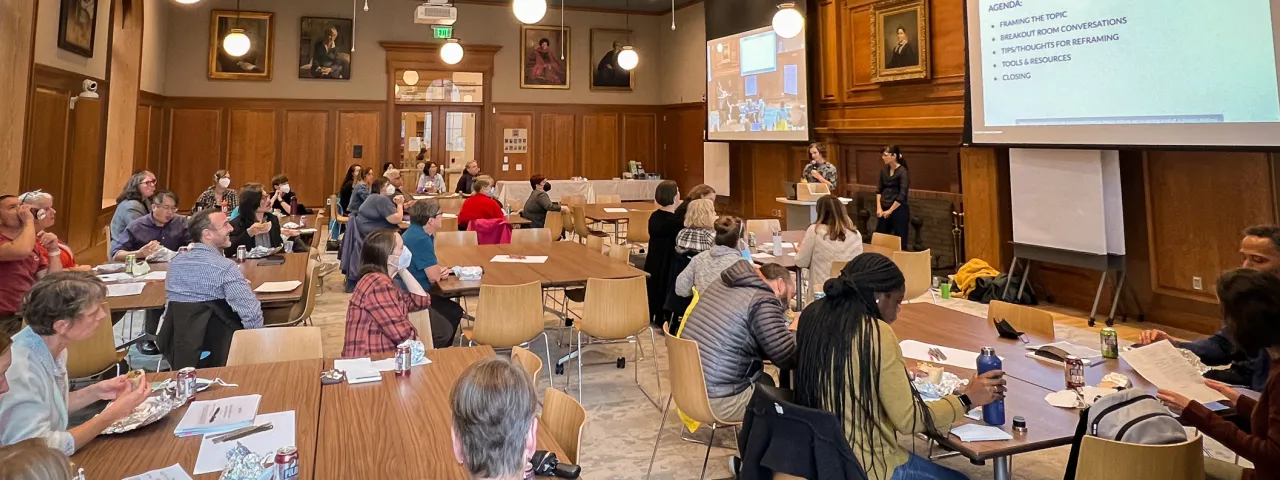For Faculty & Staff
While much of the Wurtele Center for Leadership’s programming is geared toward students, we nevertheless strive to live into our mission to equip all members of the Smith community with the creativity, courage and collaborative capacity to lead positive change. We believe strongly that in order to build these skills in our students, we need to engage as learners ourselves as we seek to model collaborative leadership. We also hope to serve as a resource to faculty and staff members who are interested in exploring new ways of building collaborative leadership skills in their students. Below are some ways our center engages with faculty and staff.
The Art of Leading Teams Lunch Series
“Thank you all so much for facilitating this amazing series! I often was on the fence about joining because I was ‘so busy with everything else,’ but every session I was able to join gave me new tools and connections across campus, and I left so glad I carved out this time for professional and personal development.”
Student Pedagogical Partners
“Thank you so much for your support and guidance during this past semester with the Pedagogical Partnership. Our monthly sessions were such a joy to attend, and I always felt inspired talking to you and the group. The time was perfectly divided between reflecting, writing, sharing, and discussing. Additionally, all of the tools you used in the meetings (as simple as the great icebreakers) were very engaging and useful.”
